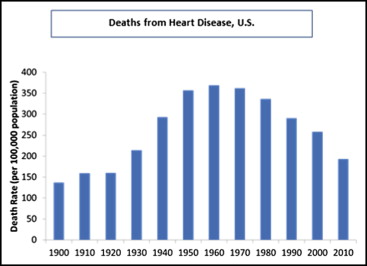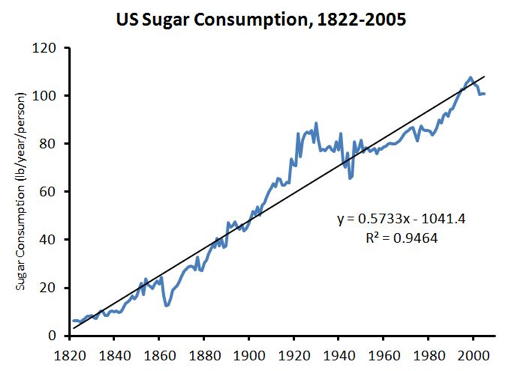
How Much Do You Need To Worry About Saturated Fats and Cholesterol
Nearly all of us have heard that we need to "watch our cholesterol" to have a healthy heart and clear arteries. In Chinese medicine, the Heart is the "King of the Organs," so it's a ... noble quest.
Before 1984, most doctors dismissed cholesterol numbers unless they were above 300.
Then, the National Cholesterol Education Program arbitrarily set "high cholesterol" at above "240." More recently, the limit for high cholesterol been lowered to above 200. (hmmmm...I wonder why?)
Oh, and before I go too far, some of the most thorough research on cholesterol and its effect on mortality indicates that people with slightly elevated overall cholesterol tend to LIVE LONGER.
Now, around 92 million Americans take statin drugs. Have we systematically wiped heart disease off the map?

Since the 1980s, the US obesity rates have doubled. Rates of diabetes have QUADRUPLED. More people are suffering from cancer, asthma and allergies, and hormonal imbalance than ever before.
And cardio vascular disease (CVD) is STILL the #1 cause of death for people over age 45 all around the world.
Cholesterol medication is one of the most common medications prescribed, apparently in an effort to help us have healthier hearts. (I don't think it's working.)
It started in the early 1900s
While the lowered rates of cardiovascular disease (from 1960 - 2010) look good, before 1950, the rates were way lower (without cholesterol medication!) It could be that fewer people reported problems to their doctors back then, but interesting nonetheless.
Between 1920-1950, the American diet changed drastically.

In the 1930s, Dr. Weston A. Price, DDS, noticed increased dental carries (cavities) in his patients and went off to travel the world and find out why.
He studied traditional cultures in Switzerland, the Aboriginees in Australia, the Maori in New Zealand, the Indians and Eskimos of North America, and the people of the South Sea Islands. He found that when people followed a "traditional diet," they not only don't have cavities, but they have almost perfect jaw and facial bone structure.
His research went on to prove, observationally, that the way we eat makes a huge difference on our overall health. The traditional diet he observed had no shortage of saturated fats in the form of organ meats, eggs, fish, raw dairy, and butter.
In the early 1900s there was an increased consumption of trans-fatty acids (crisco, margarine, hydrogenated vegetable oils), processed wheat flours, and sugary snacks.

THE FRENCH PARADOX: The French eat on average 60% more cheese, four times more butter, and three times more pork than Americans. Yet their obesity rates are less than 10%. In the US, only 31% of us are not overweight! If you are not overweight in America, you are in the minority. That's crazy! Americans also have twice the risk of CVD.
Perhaps it has something to do with their non-sedentary lifestyles, moderate wine drinking, and emphasis on living life, not grinding away at work non-stop. Oh, and free healthcare and free schools (including preschool!)
Dr. Price observed similarities in the way traditional cultures the world over eat.
- No refined or denatured foods such as refined sugar / corn syrup; white flour; pasteurized, homogenized, low-fat anything; hydrogenated vegetable oils; toxic additives or preservatives
- At least 4x the calcium and other minerals the TEN TIMES THE AMOUNT OF FAT SOLUBLE VITAMINS as the average American diet
- High food enzyme diet with raw dairy; raw meat and fish; raw honey; fermented vegetables; fruits; and cold-pressed oils
- They ate grains and nuts but only after sprouting them
- Animal bones usually in the form of broths
- Salt
- Animal products: fish; seafood; birds; animals; eggs; milk and milk products; reptiles; or insects. There are NO traditional vegan cultures in the world. Eating vegan is a relatively new construct.
I think enjoying a vegan meal from time to time is healthy. Eating plant-based is healthy. As long as you also take in, from time to time, as much as your body craves and needs, animal protein, bones, eggs, and organs.
Over 50% of your brain weight is fat and most of that fat is DHA fatty acids - the types of fats found in eggs, butter, and fish.
Ideally the ratio of vegetable oils to saturated fats is 1:2.
In the US, a typical person has more of a 20:1 ratio. Those prepackaged "healthy snack foods" are mostly based in vegetable oils. Many people end up deficient in the Omega 3 category (the saturated fats), and eating too much of the other kind.
Still worried about that cholesterol number?
If you don't eat cholesterol (saturated fats), your body will produce it by itself. Meaning, if you don't eat the butter/eggs/bacon/coconut oil/lard, your liver will produce more LDL as a way to self-persevere. So, eating saturated fats may lower your LDL.
"In Framingham, MA, the more saturated fat one ate, the more calories one ate, the lower the person's serum cholesterol....we found that the people who ate the most cholesterol, ate the most saturated fat, and ate the most calories, weighted the least and were the most physically active." -Archives of Internal Medicine, July 1992
"Saturated fat intake was inversely associated with mortality from total stroke, including intraparenchymal hemorrhage and ischemic stroke subtypes, in this Japanese cohort." -The American Journal of Clinical Nutrition, in a study with over 58,000 participants, October 2010
People who regularly eat high-carbohydrate foods (sugars and refined grains), are more at risk for cardio-vascular disease and stroke. Eating real food (like what our ancestors ate) is rarely going to cause health problems. I've yet to see someone develop diabetes from eating too many carrots and potatoes.
Signs you may need more saturated fats in your diet:
- slow wound healing
- lowered brain function (poor memory/cognition, brain fog)
- low vitamin D
- gall bladder problems
- chronic infections
- hormone imbalances (all hormones are made from CHOLESTEROL!)
THERE ARE SOME FATS YOU WANT TO AVOID
And those are trans-fatty acids, also known as hydrogenated oils. There is no safe amount of trans-fatty acids in the diet. Go ahead and throw these away:
- soybean oil (probably GMO as well as hydrogenated)
- crisco
- margarine
- rapeseed / canola oil
- peanut oil (may be GMO)
- corn oil (likelihood of GMO as well)
- palm oil
COOKING OILS VS RAW / COLD OILS
Some Omega-6 vegetable oils are OK, like safflower, sunflower, or olive oil, only if you eat them cool, like in a dip or salad dressing. Do not heat them up or they turn into trans-fatty acids which can cause cellular mutation. If you're going to cook with oil, opt for a saturated fat like butter, ghee (clarified butter), coconut oil, or lard.
WHAT ABOUT STATIN DRUGS
The medication doctors prescribe to "fix" high cholesterol comes with a list of intense side effects.
Most common among those side effects is muscle pain. When the statin is doing its thing in your Liver, it slow the production of cholesterol, along with an enzyme called CoQ10. You may have heard of it before.
CoQ10 is found in all your cells, and is necessary for nerve conductivity and muscle function. High amounts of CoQ10 are found in your Heart - your Heart is a muscle!
New research (2023) shows that statins cause epigenetic changes in the blood vessels. The researchers think this is beneficial, leading to a reduced risk of cancer and improved circulation in patients. Keep in mind that cancer is still the #2 cause of death in the U.S. for people over age 45. Also, do we want to alter gene expression in our bodies artificially? It seems short-sighted to me.
IN CONCLUSION
Do you need to worry about your cholesterol? Only if it's above 300. Ideally, your cholesterol is around 200-230. I wouldn't focus on getting it lower than that because you do want to make hormones, right?
That alone takes care of 90% of people worried about their cholesterol. Above 300, take the medication, sure. Between 230-300, it's time to take a closer look at your diet. Eat real food - natural and organic proteins, eggs, and fats; raw dairy; fermented foods; vegetables and fruits; salt; and bone broth. Avoid sugar, processed grains, and transfatty acids (fried and pre-packaged foods).
And see your acupuncturist so they can check your heart pulse for good circulation!
Don't miss a beat!
New moves, motivation, and classes delivered to your inbox.
We hate SPAM. We will never sell your information, for any reason.
